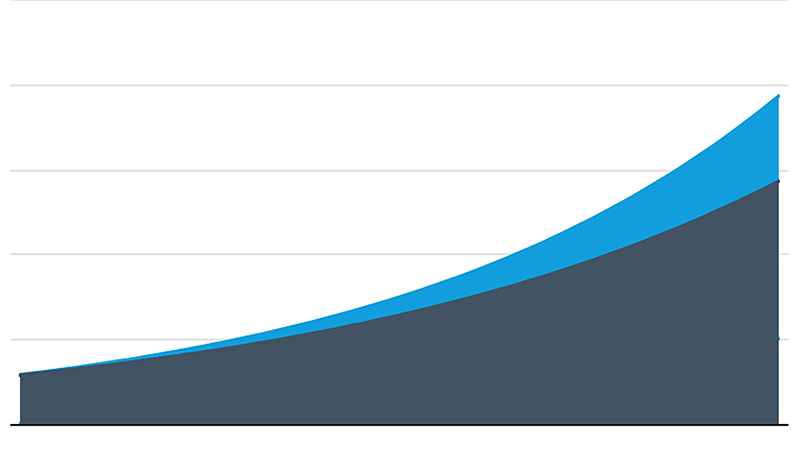Index
Index mutual funds and index exchange-traded funds (ETFs) can help provide efficient access to a wide swath of markets—often at lower costs than actively managed funds.
Our approach
We focus on the investor, rather than chasing down the latest investment trend. Our index mutual funds and index ETFs include simple, low-cost, core investment products, spanning both the equity and bond markets, and can help offer the diversification required in a well-rounded portfolio.


Low-cost index philosophy
Expenses matter. Every basis point counts in helping investors achieve their investment goals. That's why we're focused on offering the index products investors and their advisors want—at competitive costs.
What we offer
In 1991, we launched our first index fund, the Schwab 1000 Index® Fund, based on Schwab's proprietary index methodology. Since then, we've become the fifth-largest ETF provider in the U.S., with over $297 billion in AUM, and the third-largest retail index mutual fund provider in the U.S., with over $198 billion in AUM.1 We offer index products that give investors the tools to help build a diversified portfolio.
Differentiators
- Among the lowest costs in the industry.
- No minimum investment.
- 22 out of 30 of our index ETFs exceed $1 billion in AUM.2
Benefits
- Established, long-tenured investment management expertise.
- Opportunity to build a diversified portfolio for only four basis points on average by investing in just three Schwab ETF products.3
- Average expense ratio of 10 basis points across our index ETFs and 14 basis points across our index mutual funds.4
Schwab Fundamental Index* mutual funds and ETFs
While fund expenses should not be the only factor in choosing a strategic beta strategy, selecting a strategy with a low expense ratio remains an important consideration—especially over long time horizons. The asset-weighted average total expense ratio for Schwab Fundamental Index ETFs and mutual funds is 0.28% and 0.26%. 6

Advisor resources
ETF education hub
Explore tools, analysis and insights designed to help advisors refine their ETF strategy and help meet their clients’ financial goals.



